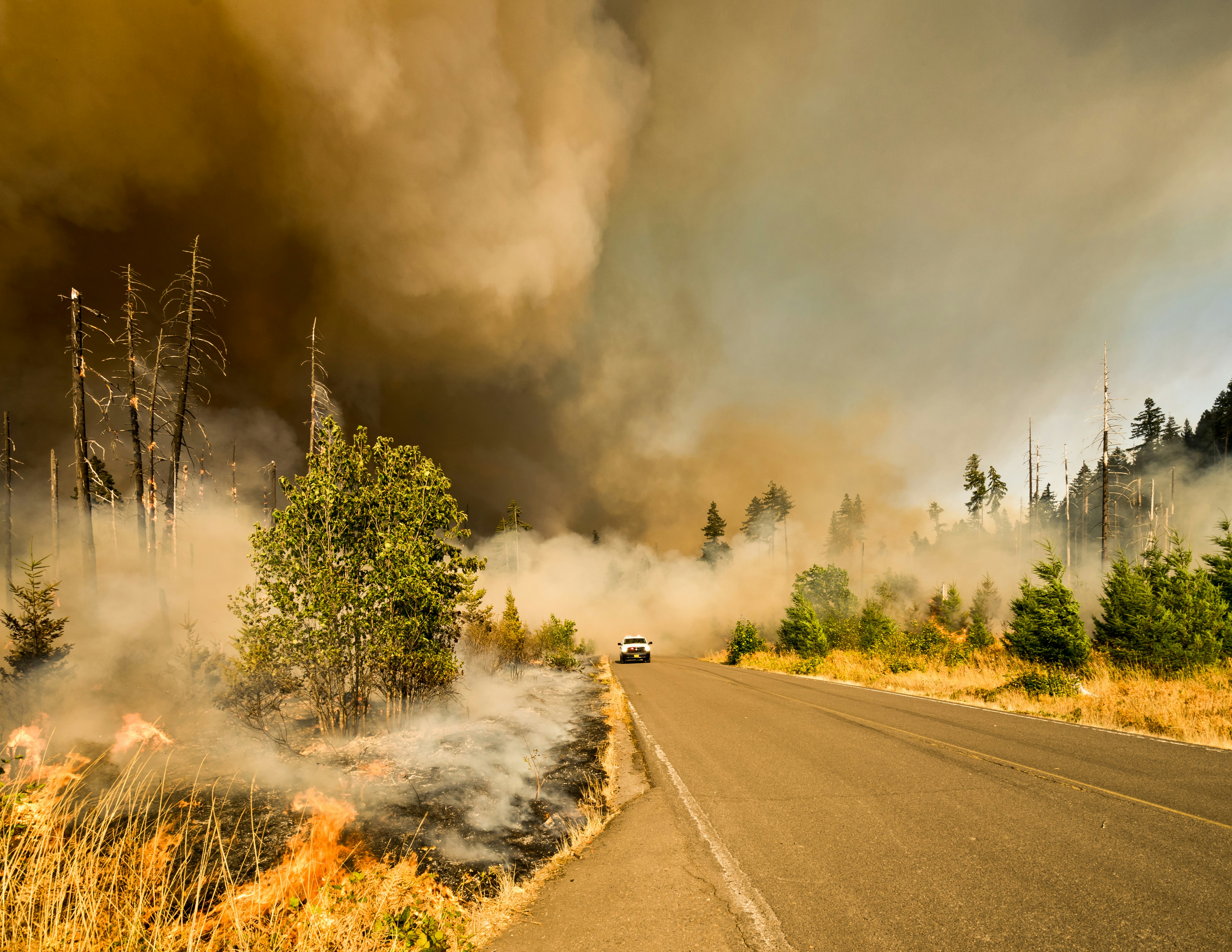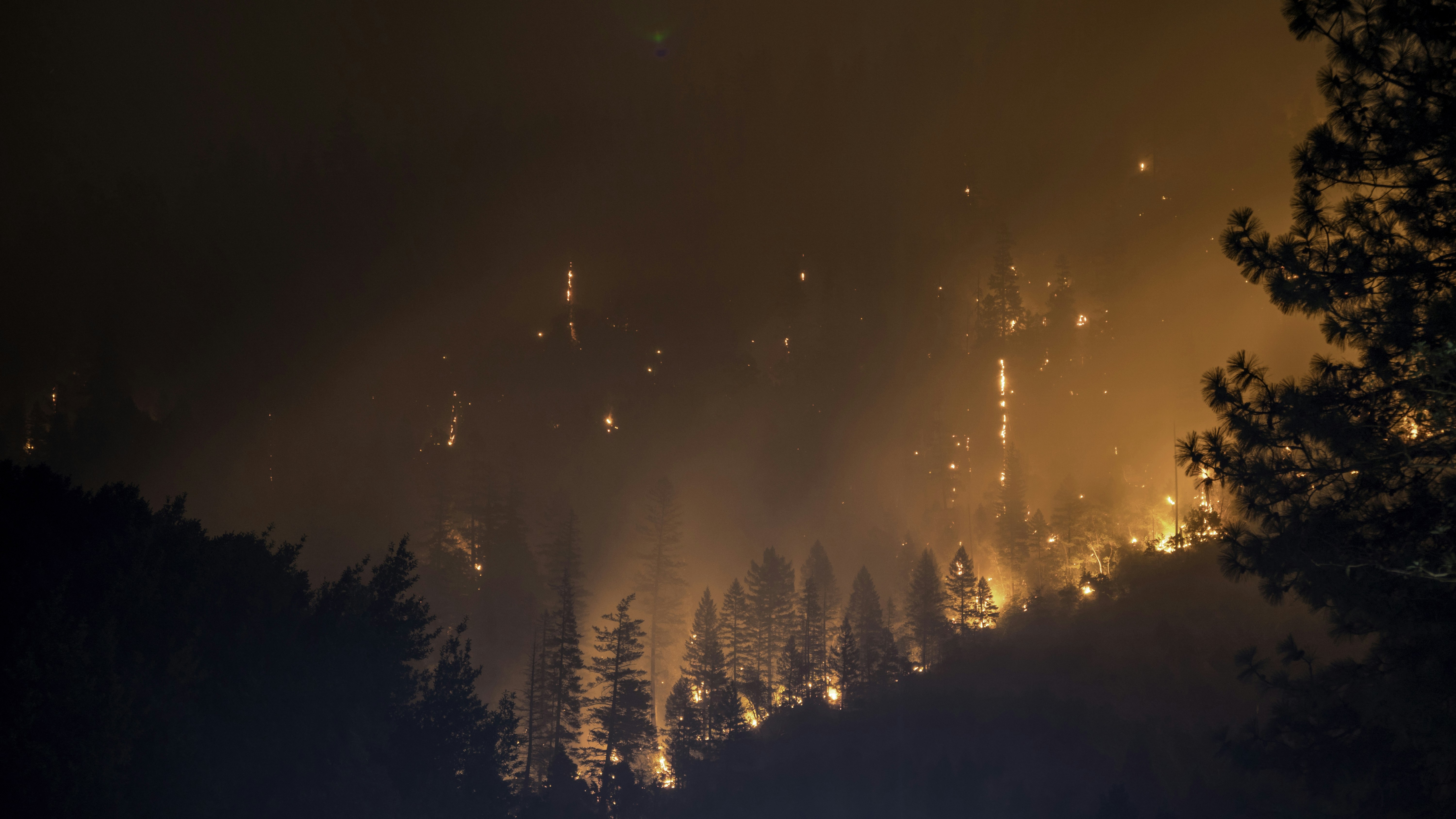News
-
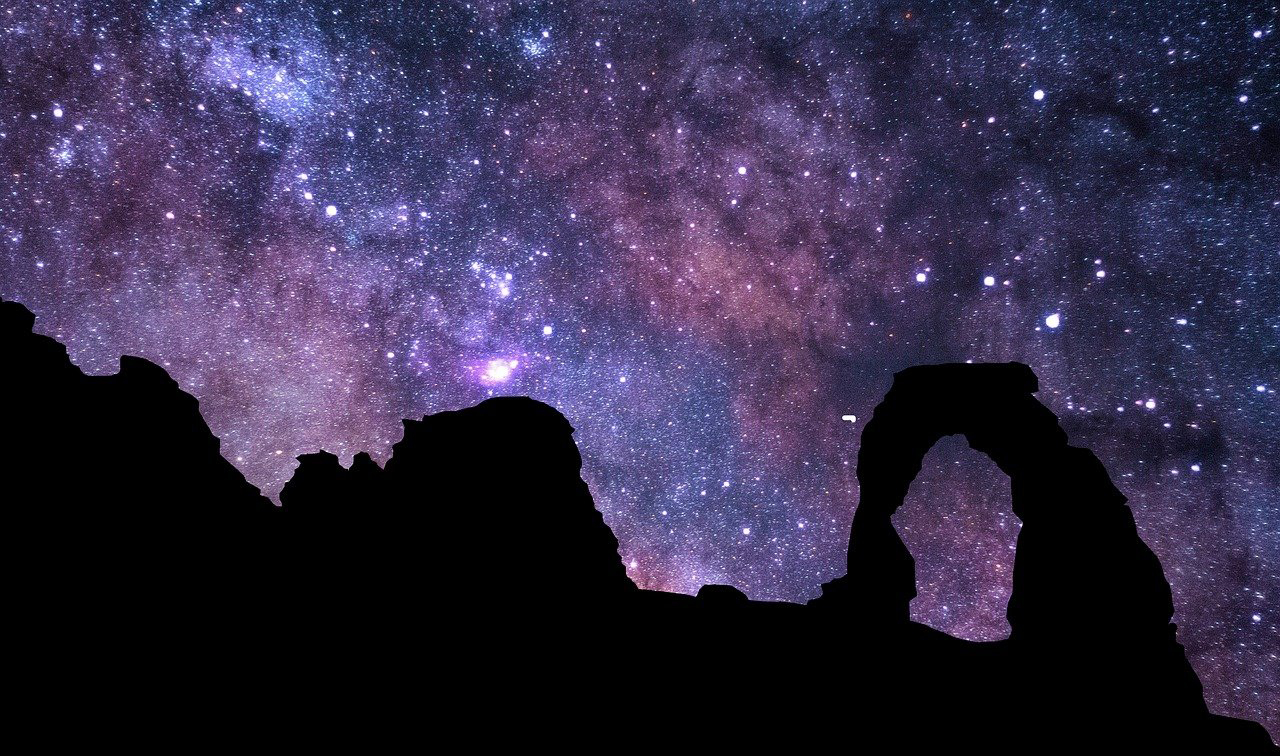
Geography Faculty Research
Congratulations to Simon Brewer and Rich Medina on their recently published research
-

Geography Faculty in the News
Geography Professor McKenzie Skiles' work with Protect Our Winters
-
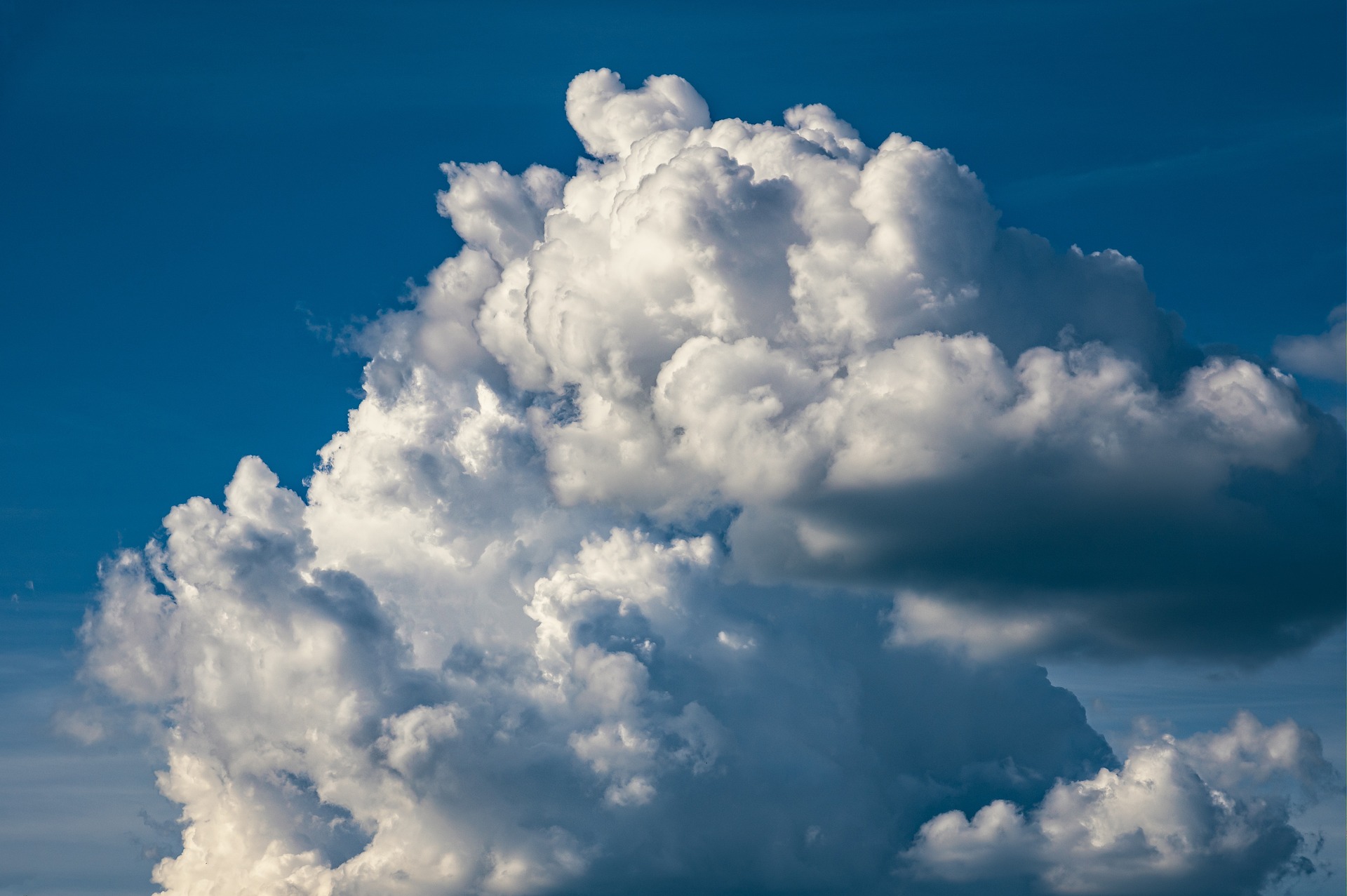
Geography Faculty News
University of Utah part of new NSF-funded initiative to ensure regional climate solutions and economic opportunities
-

Geography Faculty News
Geography Professor Yehua Dennis Wei has been made a Fellow of the American Association of Geographers.
-

Geography Faculty News
Jessica DiCarlo selected for US-China Public Intellectuals Program
-

Geography Faculty News
Congratulations to Neng Wan on being named a U Presidential Scholar!
-
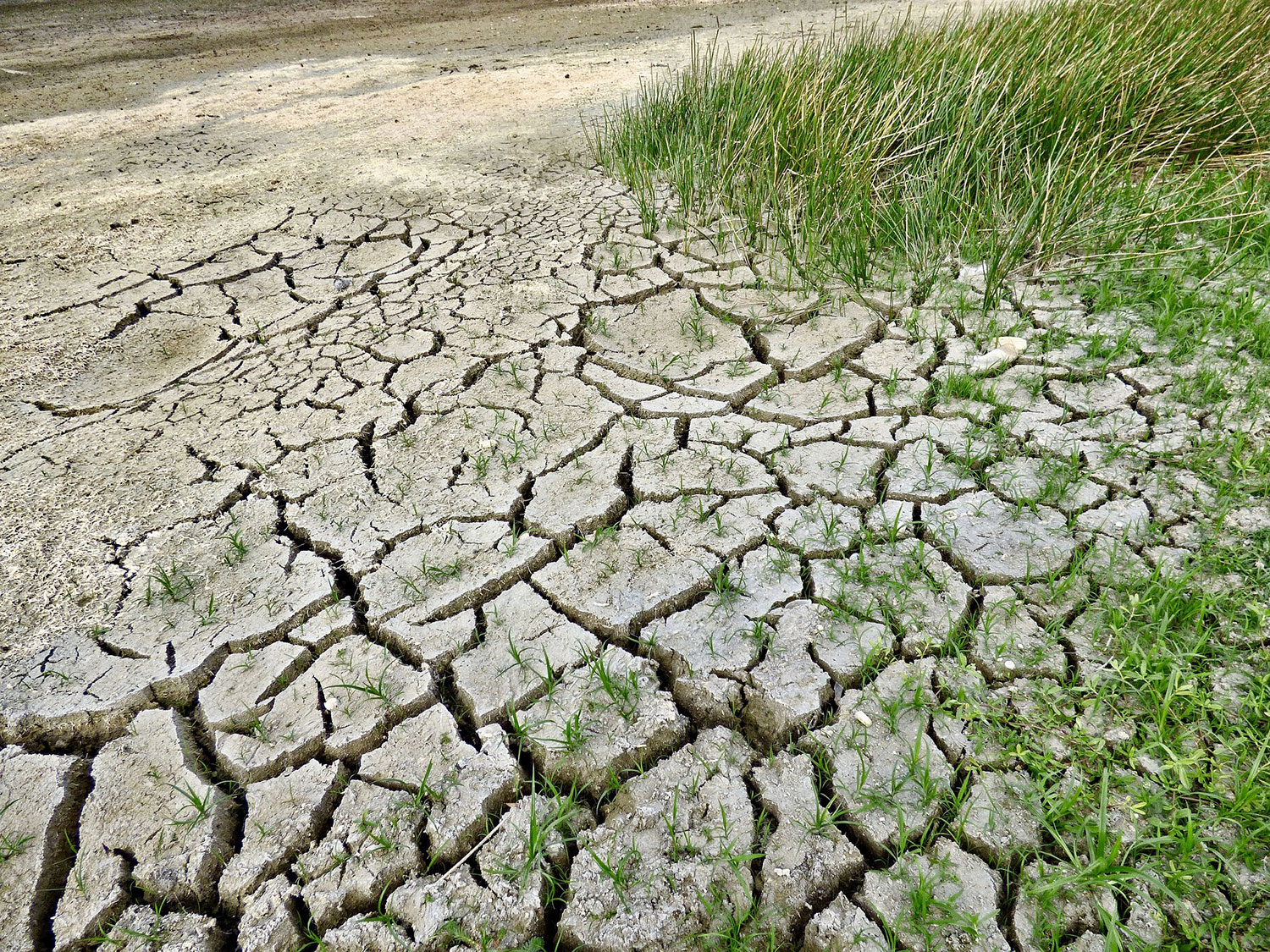
Geographers predict migration using climate
U Geography professors Andrew Linke and Simon Brewer and grad student Matt Shawcroft recently published Dry growing seasons predicted Central American migration to the US from 2012 to 2018 in the journal Scientific Reports. In this paper they demonstrate how drier growing seasons are driving emigration from El Salvador, Guatemala, and Honduras. Their paper was recently covered in an article in The Economist.
-
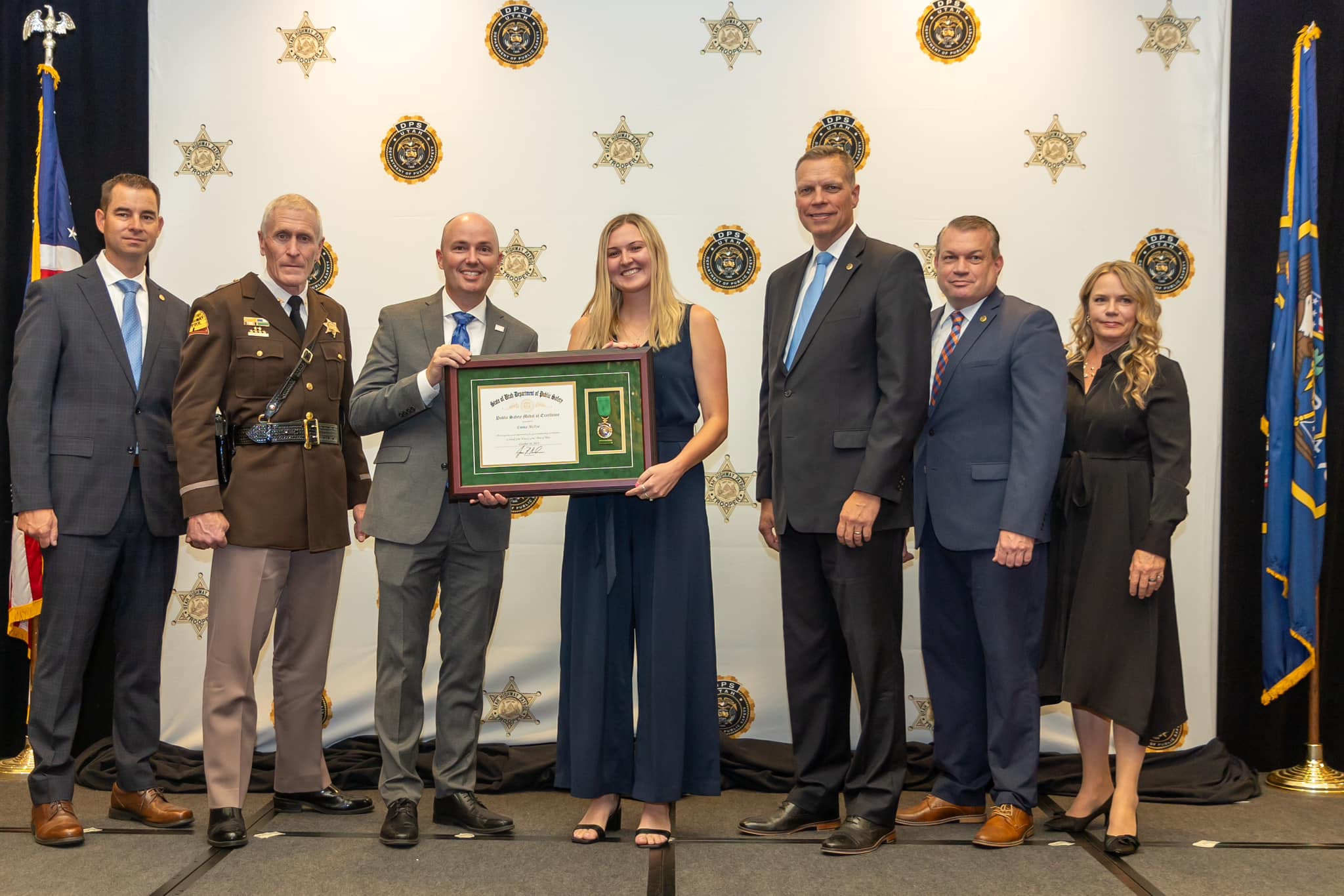
Geography Department Alumni News
Congratulations to former University of Utah, Geography alum Emma McFee! She was nominated and received a State of Utah Public Safety Medal of Excellence presented by Spencer Cox the Governor of Utah. Emma had a challenging but rewarding year at work running point on damage assessments for flooding and managing other disaster grants. Way to go Emma!
-
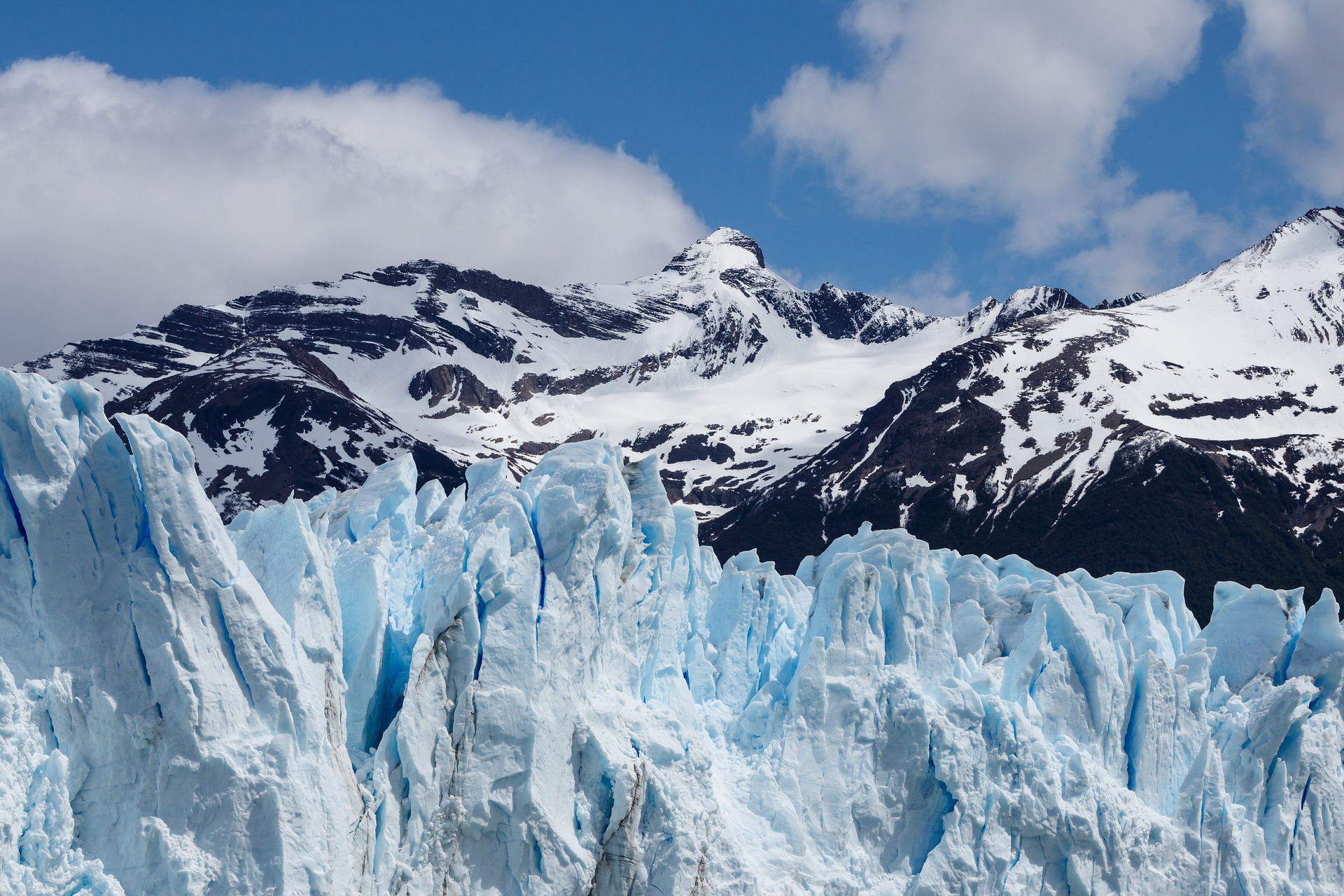
Geography Faculty News
McKenzie Skiles has received the AGU Cryosphere section’s Early Career Award! The award recognizes “significant early career contributions to cryospheric sciences and technology.” Congrats, McKenzie!
-

Geography Faculty News
Geography and ENVST faculty Jessica DiCarlo named a Wilson China Fellow
-
.jpg)
Geography Faculty News
U of U Geography Professor Tom Cova was interviewed for an article in Wired Magazine
-

Geography Faculty News
Dr. Neng Wan leads new NIH-funded project on physical activities among Pacific Islanders in the US
-
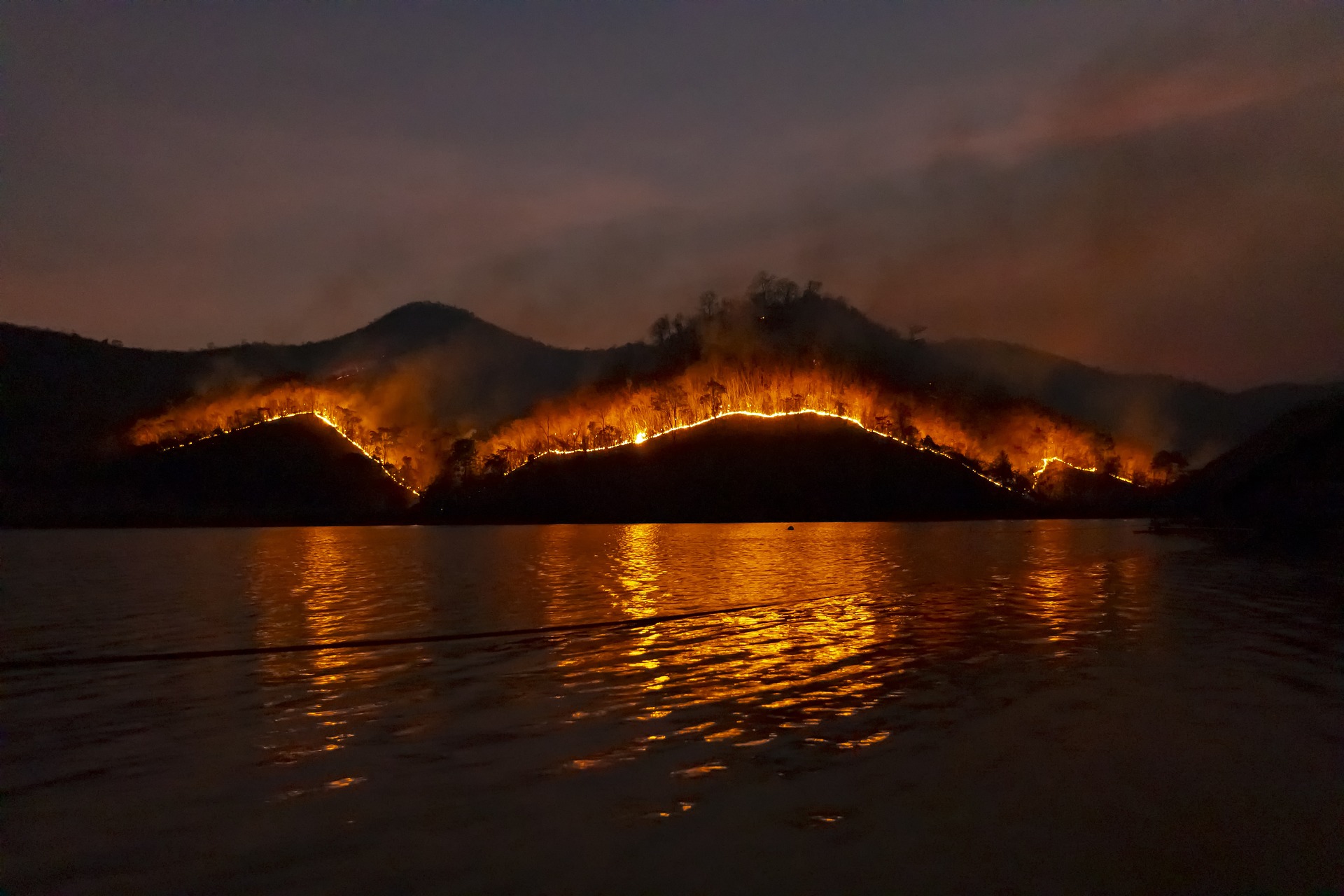
Congratulations to Stella Mosher
Stella Mosher was awarded the 2023 PhD Scholarship from the International Association of Wildland Fire.
-

Geography faculty in the news
Professor McKenzie Skiles' Research Featured in UNews
-
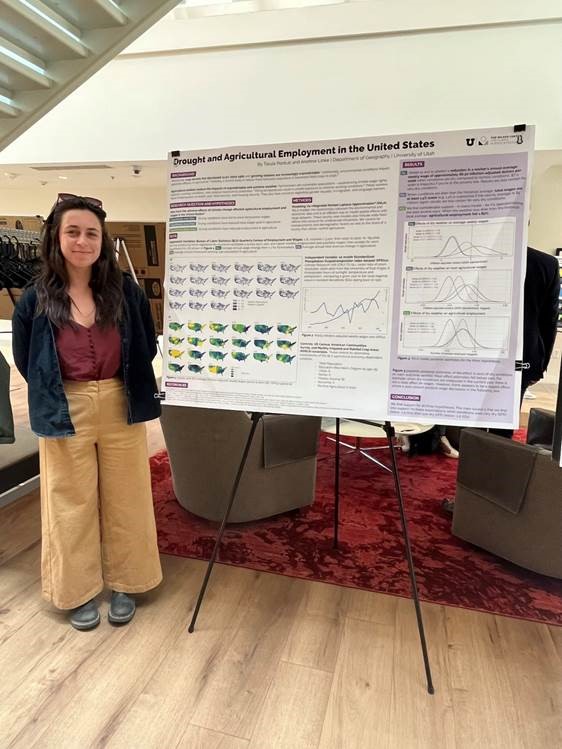
Congratulations Geographers
Congratulations to Talula Pontuti on her first place win in the Wilkes Climate Summit poster competition.
-
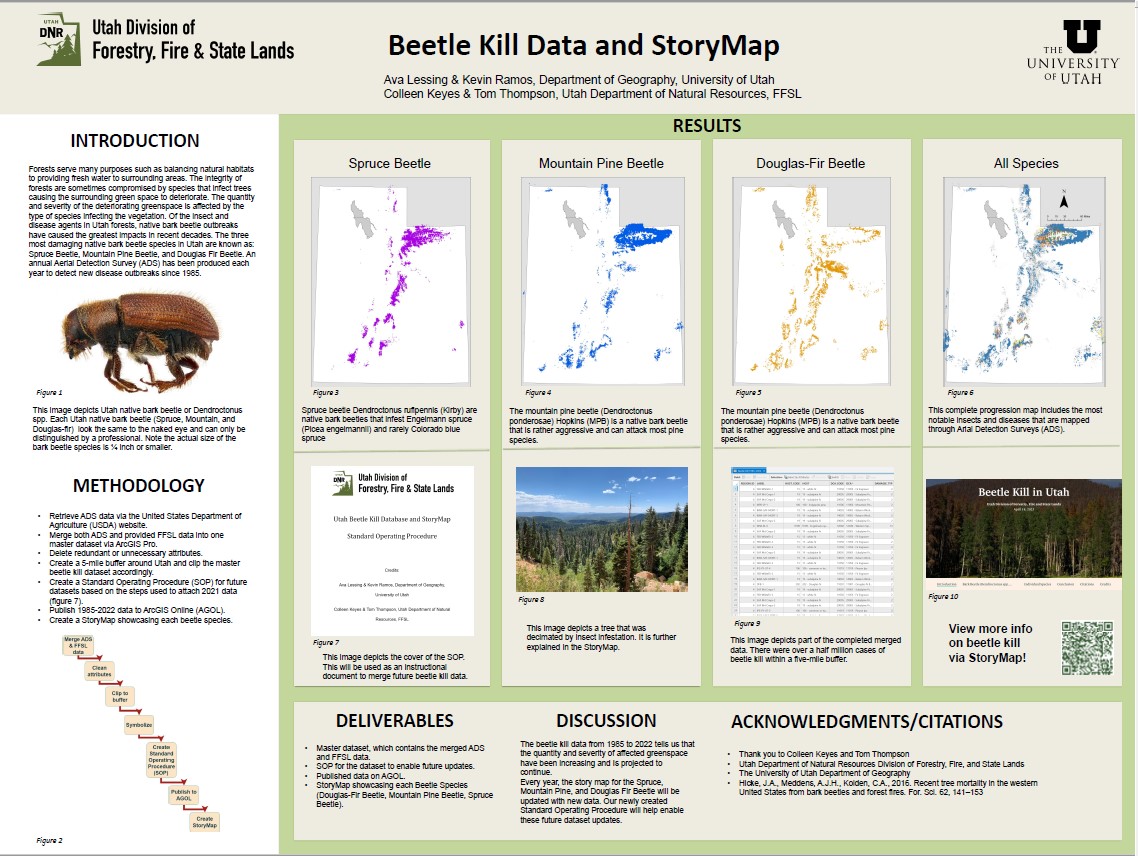
Congratulations to Ava Lessing and Kevin Ramos
Congratulations to Ava Lessing and Kevin Ramos for winning the Utah Geographic Information Council (UGIC) student poster competition last week with their Capstone in GIS poster titled “Beetle Kill Data and StoryMap.”
-

Geography Faculty in the News
Geography Department Professor Kathleen Nicoll was interviewed by local news sources regarding the recent house slides in Draper.
-

Geography Faculty in the News
McKenzie Skiles featured in @theU
-
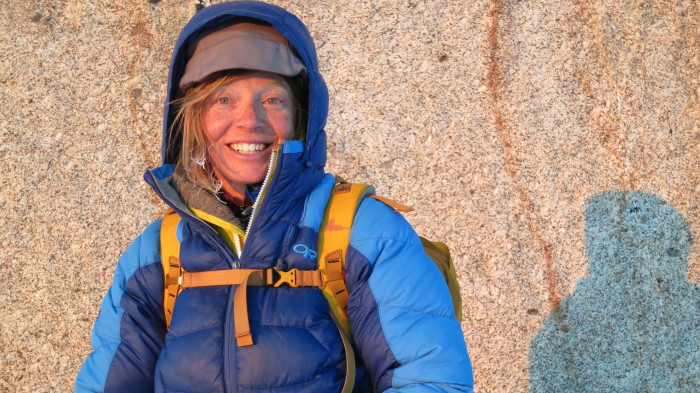
Geography Alumni News
Dr. Jewell Lund, recent PhD graduate from the University of Utah, Geography Department published a research paper in Water Resources Research in March, 2023
-
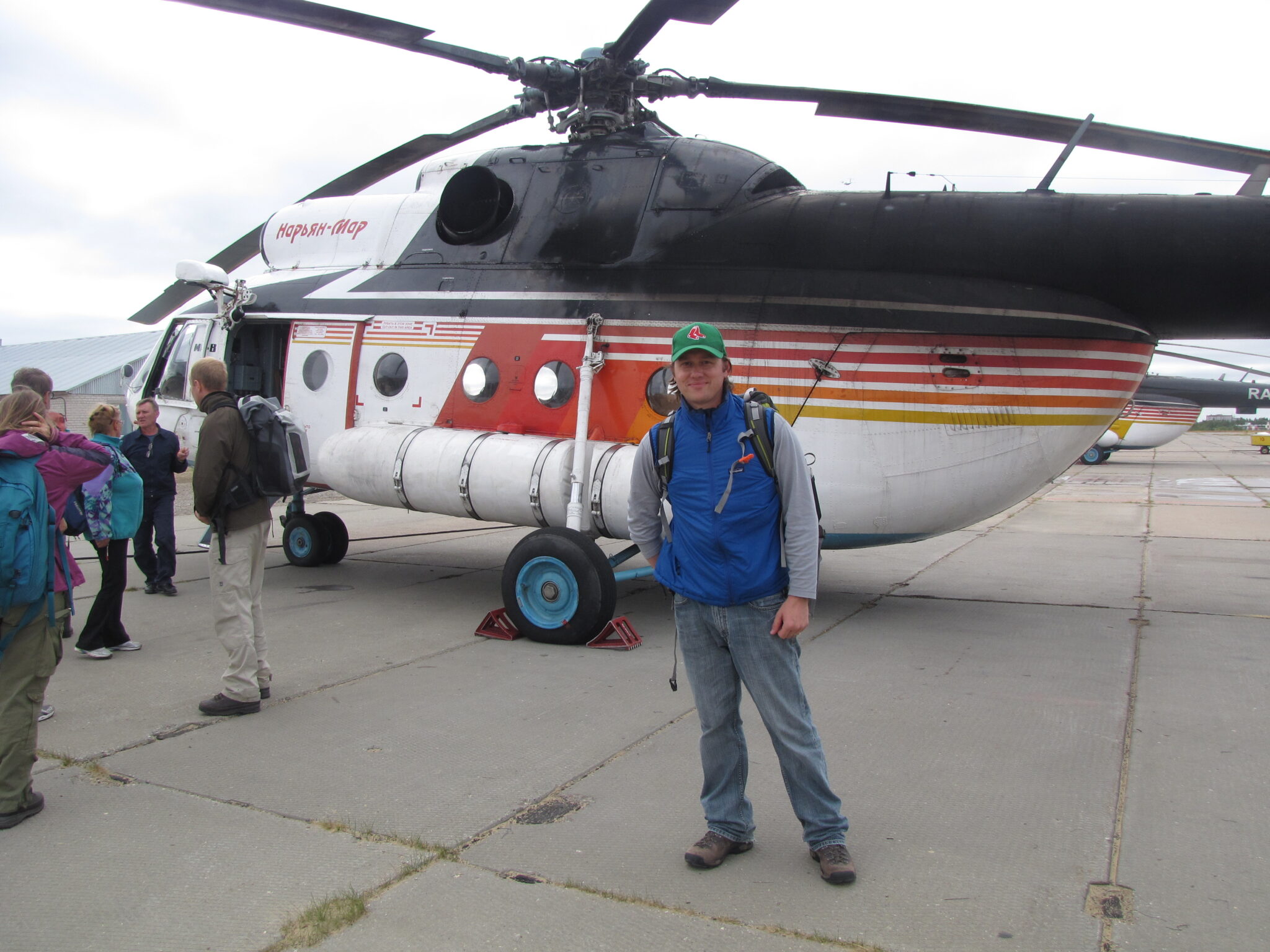
Geography Faculty in the News
Dr. Jesse Morris talks how growing up around forests led to his passion to study conifers, forest conditions
-

Geography Faculty in the News
Geography Associate Professor Rich Medina was interviewed for an article on ksl.com
-

Geography Faculty News
Research Assistant Professor Mickey Campbell and Professor Phil Dennison have developed a new tool for improving wildland firefighter safety.
-

Geography Faculty Awarded One Utah Data Science Hub seed grants
@theU announced this morning that two teams with Geographers were awarded One Utah Data Science Hub seed grants.
-
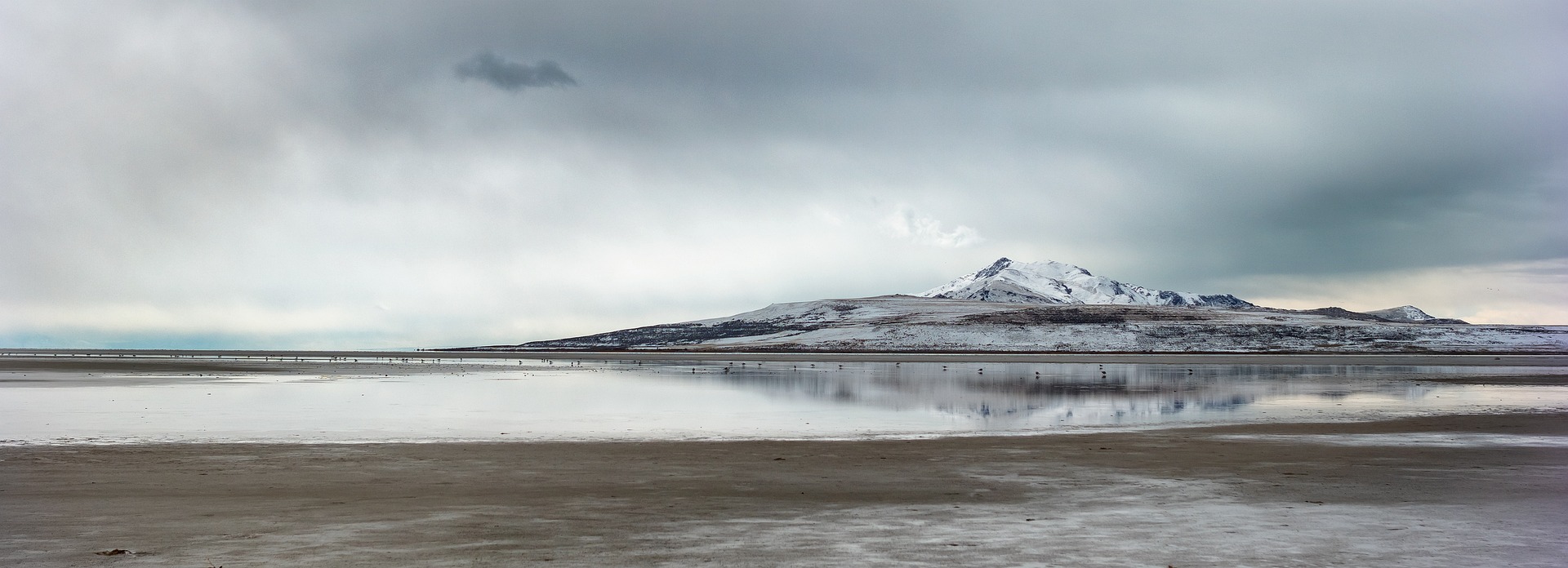
Geography Faculty in the News
Dust on Snow - McKenzie Skiles' research featured on fox13now
-

Geography Graduate Students in the News
U of U Geography Grad Student, Rebecca Richards-Steed's Research Was Featured in @theU
-
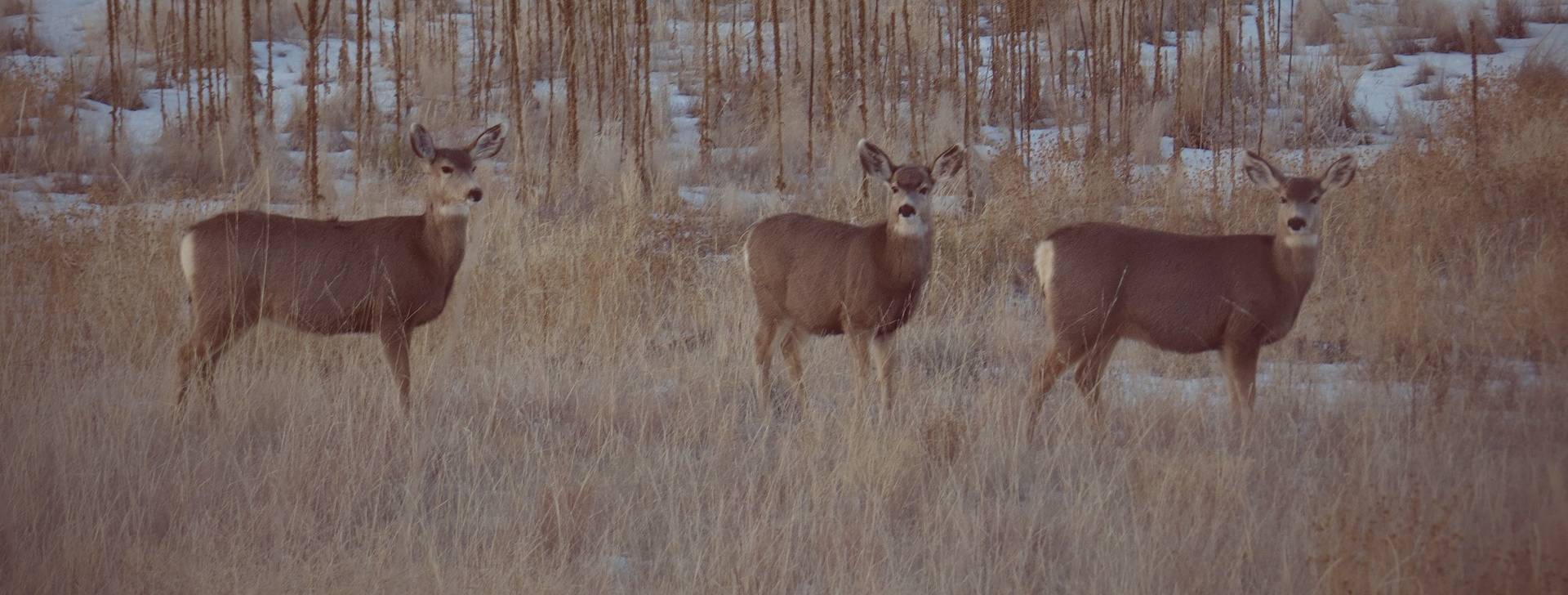
Geography Faculty Research in the News
Corridors between national parks would boost mammals’ persistence time
-
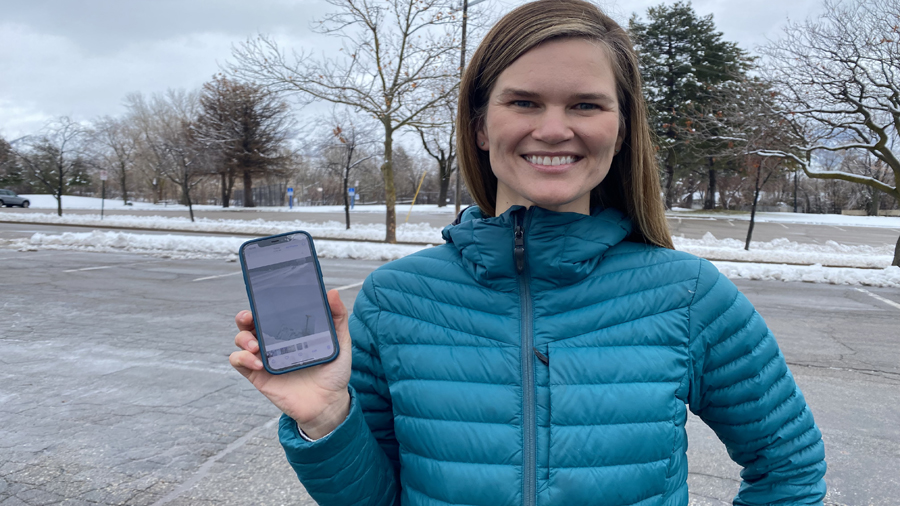
Geography Faculty in the News
McKenzie Skiles' Research Featured on ksl.com
-

-

Geography Grad Students in the News
Stella Mosher's research featured in Nature
-

Geography Faculty In The News
Jesse Morris contributed to an article that was featured on KSL and in the St. George News
-
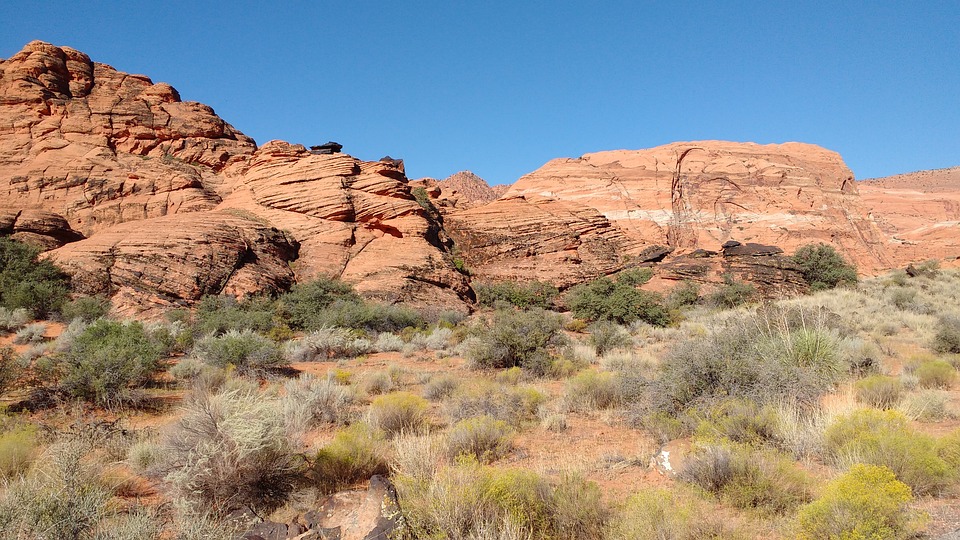
Remaking Maps
The U’s American West Center will highlight 30 Native place names during November.
-

Geography Alumni News
See what Adam Dastrup, UGeography Alum helped create in partnership with various collaborators on the Great Salt Lake. Great job Adam!
-
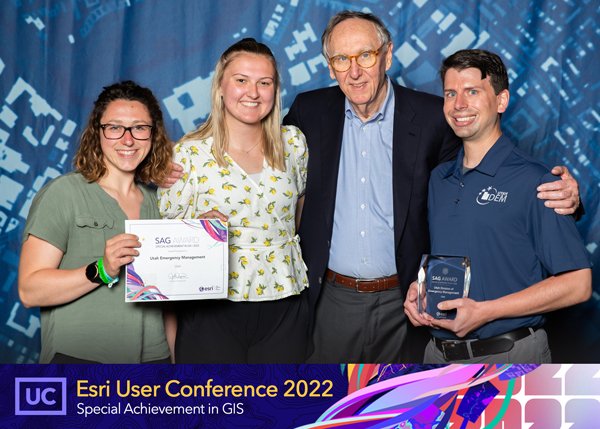
Congratulations to our UGeography alumni Josh Goreneveld, Julia Surkis, and Emma McFee!
Congratulations to our U Geography alumni Josh Goreneveld, Julia Surkis, and Emma McFee!
-

Rebecca Richards-Steed Paper published in the International Journal of Health Geographics.
Rebecca Richards-Steed's Paper, titled Evidence of transgenerational effects on autism spectrum disorder using multigenerational space‑time cluster detection was published in the International Journal of Health Geographics.
-
Geography Faculty in the News
Geography professor Tom Cova was recently interviewed regarding evacuation planning for both an article in the Salt Lake Tribune and one in the Atlantic.
-

Geography Faculty in the News
A new paper led by Alex Hohl was featured in @TheU
-

Geography Students Recognized at UGIC Conference
Congratulations to Geography Grad Students Julia Surkis (MSGIS) and Jessie Eastburn (MS)
-
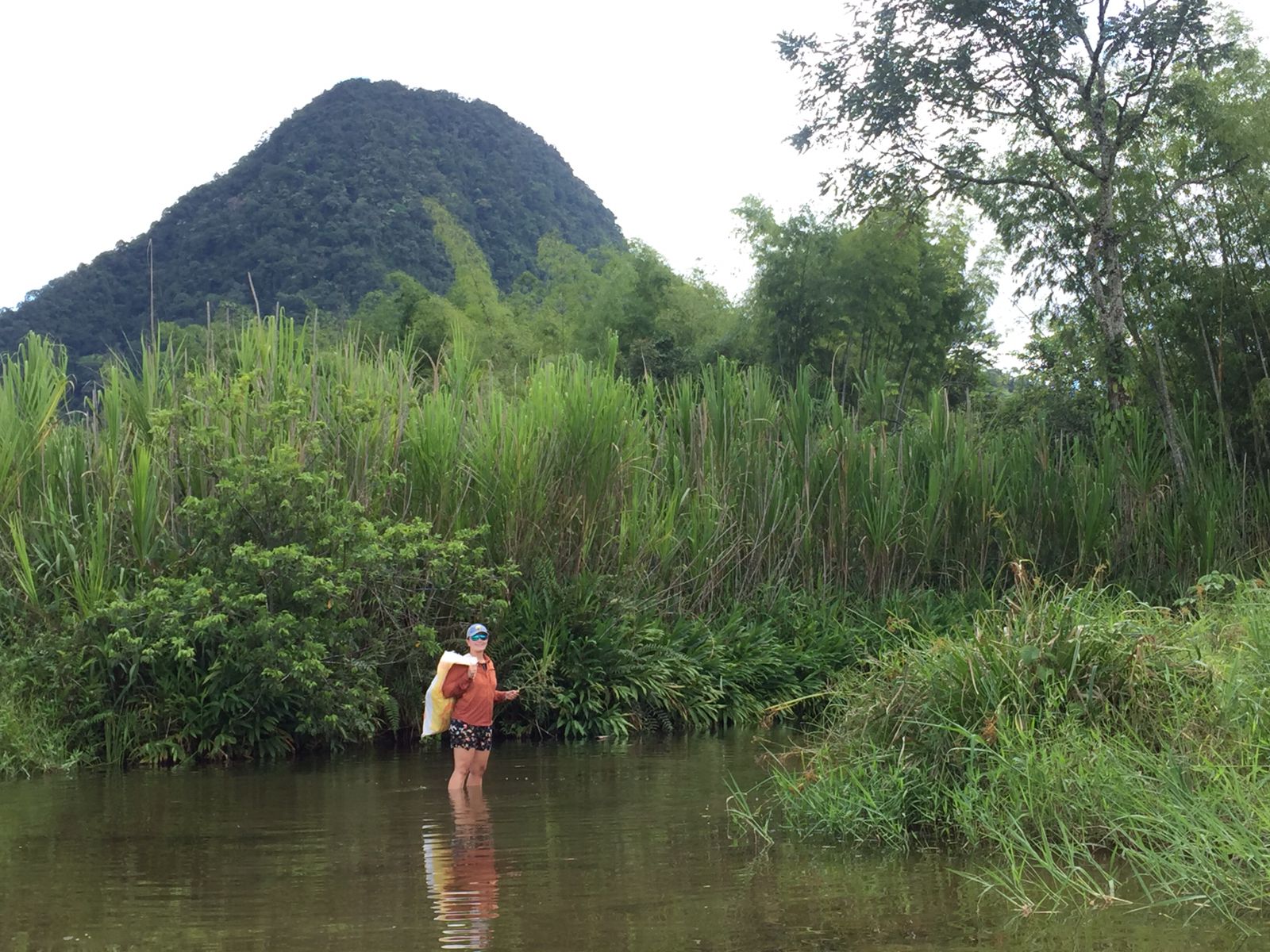
Susana Velasquez-Franco Awarded AASP-TPS Student Research Grant
Geography PhD student Susana Velasquez-Franco was selected to receive an AASP-TPS Student Research Grant for her dissertation project
-

Geography Faculty in the News
McKenzie Skiles talk about the future of Utah’s water on RadioWest
-
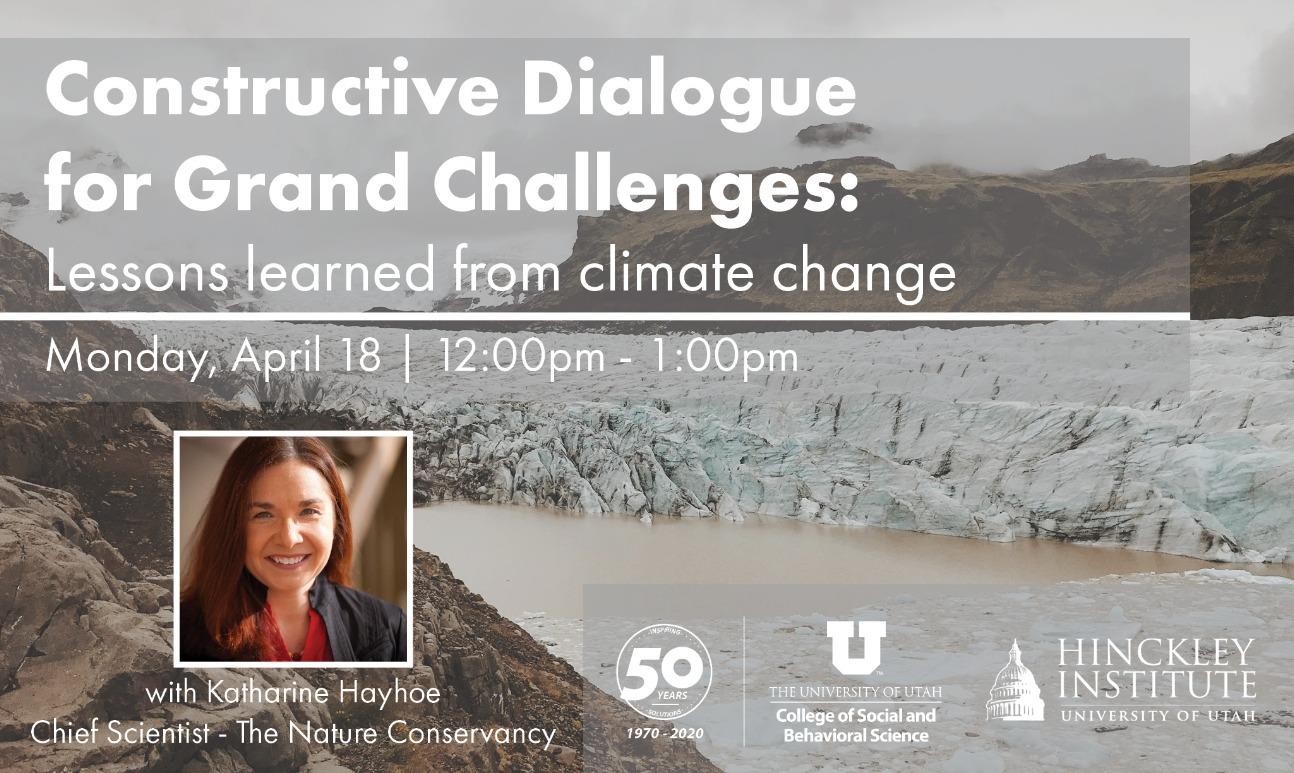
Dr. Tom Cova part of panel on "Grand Challenges" facing society
On Monday, April 18, Geography professor Tom Cova took part in a discussion panel during the College of Social and Behavioral Science's 50th anniversary event featuring Dr. Katharine Hayhoe
-

Forecast for snow
University of Utah professors to develop more accurate methods of measuring and analyzing mountain snowpack.
-

Congratulations to Summer Rupper and Morgan McDonnell
Summer Rupper and Morgan McDonnel were part of the team awarded the GK Gilbert Award for Excellence in Geomorphological Research by the AAG.
-
Congratulations
Congratulations to our students and faculty
-
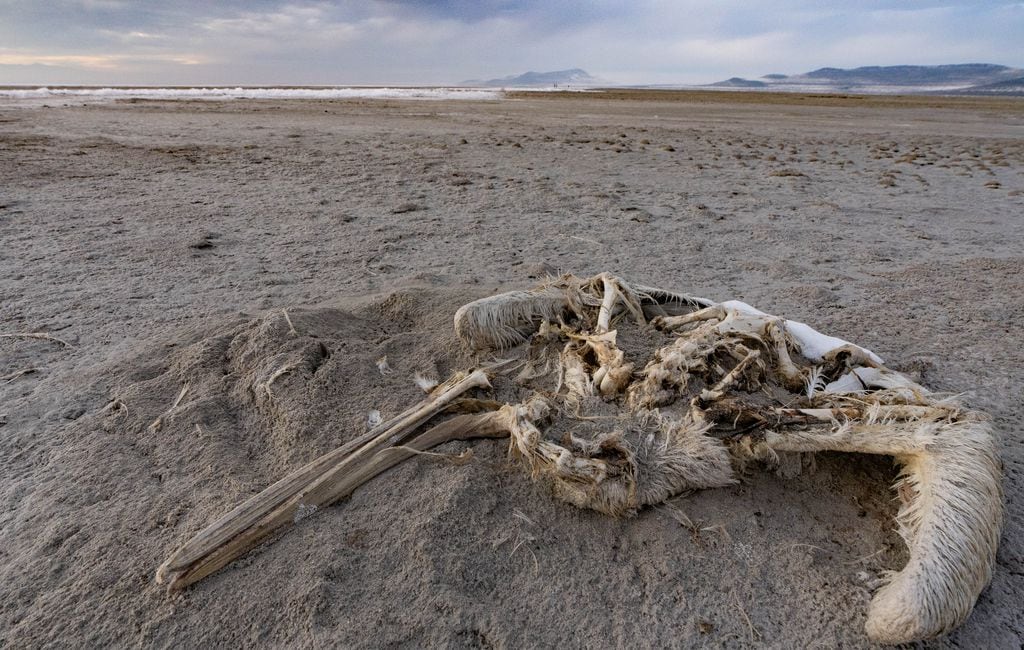
McKenzie Skiles' Research featured in the Salt Lake Tribune
McKenzie Skiles' Research featured in the Salt Lake Tribune
-
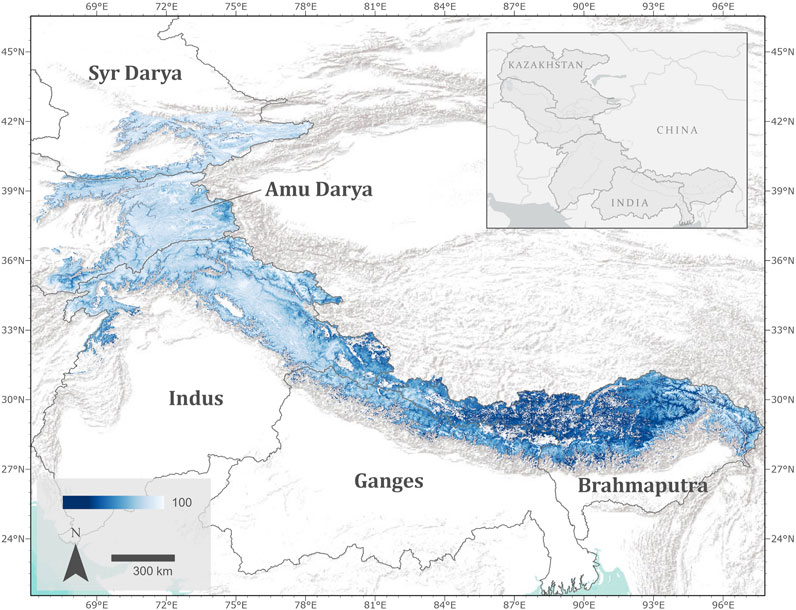
Chelsea Ackroyd Paper Published in Frontiers in Earth Science
Chelsea Ackroyd's Paper Trends in Snow Cover Duration Across River Basins in High Mountain Asia From Daily Gap-Filled MODIS Fractional Snow Covered Area was published in the journal Frontiers in Earth Science
-

Geography Faculty in the news
Geography Assistant Professor McKenzie Skiles was interviewed for a KSL article regarding the future of snow in the Western United States
-
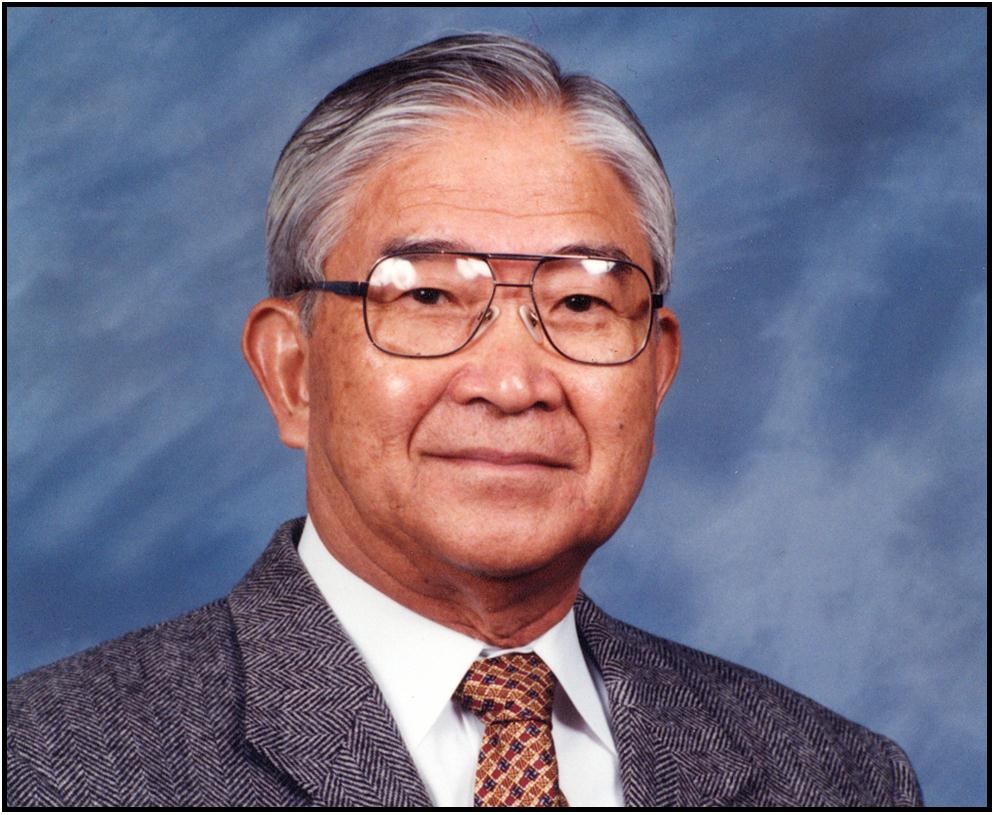
In Memoriam: Dr. Chung-Myun Lee
Dr. Chung-Myun Lee, Professor Emeritus of Geography passed away on November 8, 2021 at the age of 96.
-

Geography Grad Students in the News
Geography PhD student Susana Velasquez-Franco was featured in @TheU
-
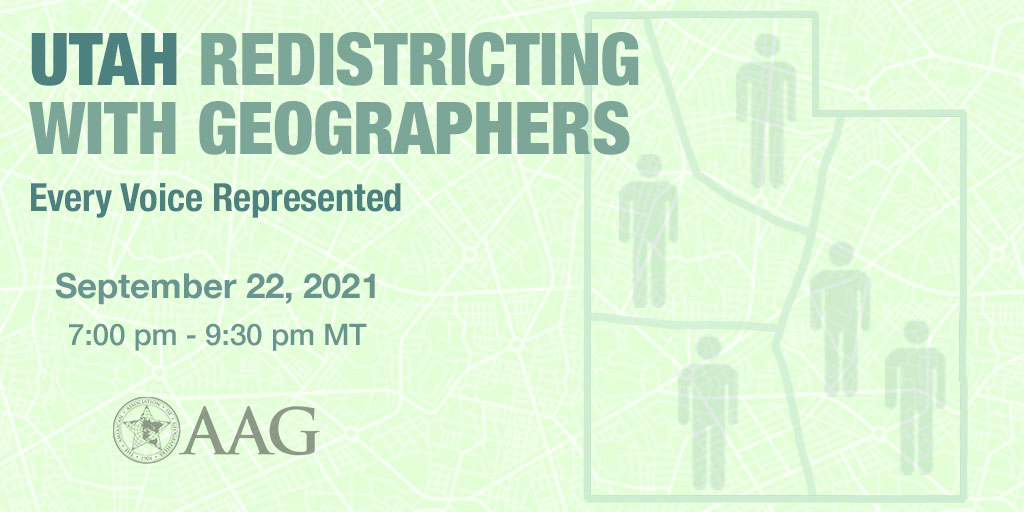
AAG Redistricting Panel
The AAG Redistricting Panel Series has an upcoming virtual panel in Utah on Wednesday, September 22nd at 7pm MT, organized by Rebecca Steed of the University of Utah.
-

Summer Rupper and McKenzie Skiles comment on IPCC climate report
Geography Professors Summer Rupper and McKenzie Skiles were among the U professors to weigh in on the sixth IPCC climate report.
-
Geography Grad Students in the News
Andre Coleman, Geography Ph.D. student, featured in the news about using satellites, drones and artificial intelligence and how emerging technology is changing the way firefighting agencies and governments battle the ever-increasing threat of wildfires as hundreds of thousands of acres burn across the western United States.
-

Geography Grad Student Research
Geography grad student Morgan McDonnell coauthored a paper which investigates the cause, scope and impact of the Uttarakhand flood and landslide.
-
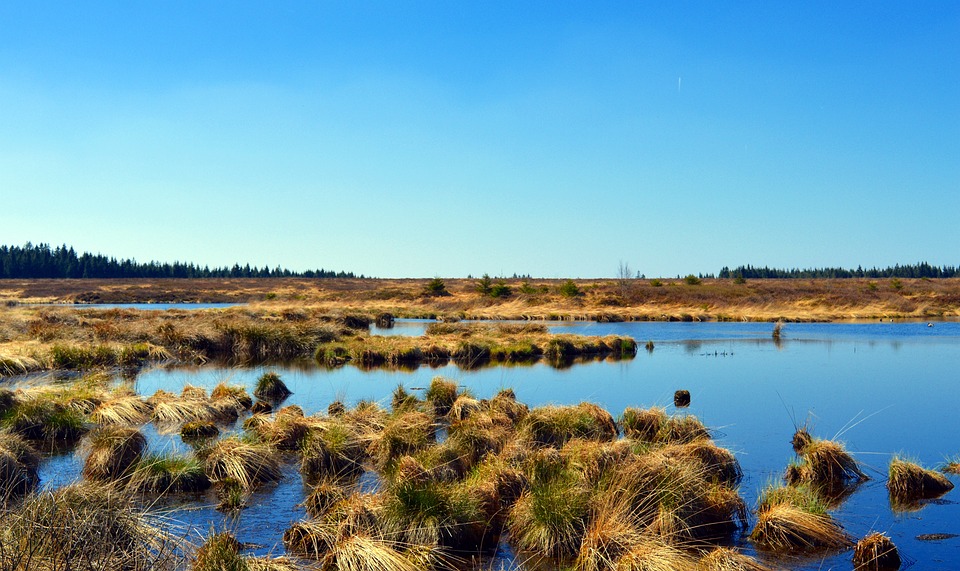
Geography Faculty in the News
Simon Brewer's research featured in the Washington Post
-

Geography Faculty in the News
Tom Cova's research featured in @theU
-

Aaron Flores Wins 2021 CSBS Student Research Day Award
Aaron Flores Wins 2021 CSBS Student Research Day Award
-

Mitch Power Joins "Understanding the Science" Lecture
Mitch Power Joins "Understanding the Science" Lecture
-
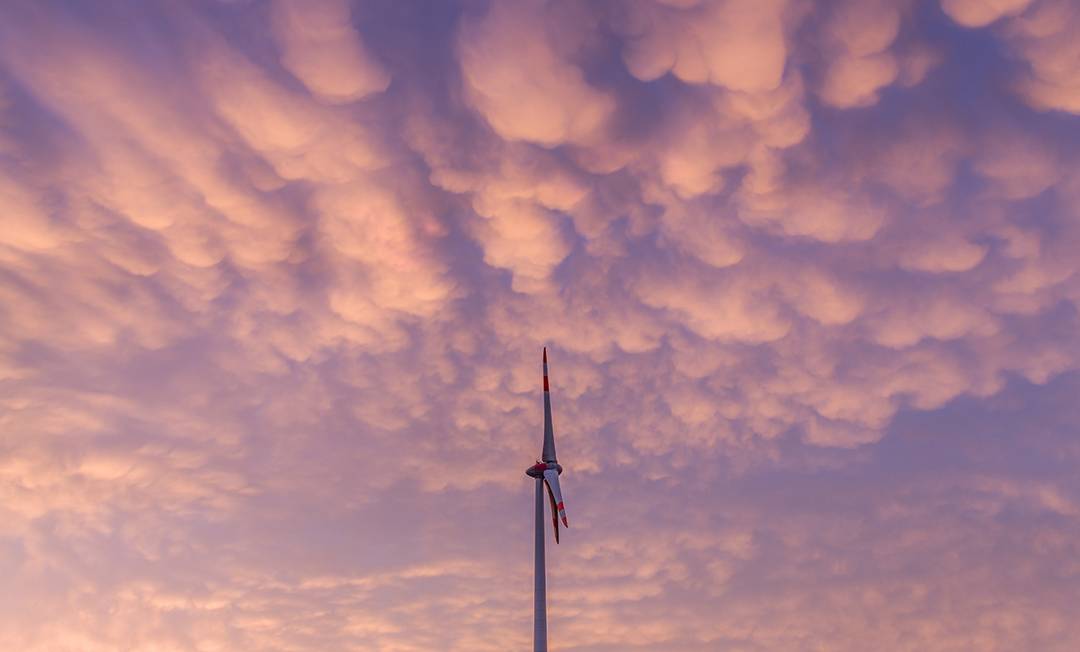
-
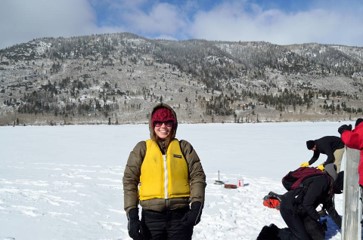
Indigenous land-use reduced catastrophic wildfires on the Fish Lake Plateau
U researchers found that 1,000 years ago, the Fremont used cultural burning to reduce the risk for large-scale wildfire activity in mountain environments.
-
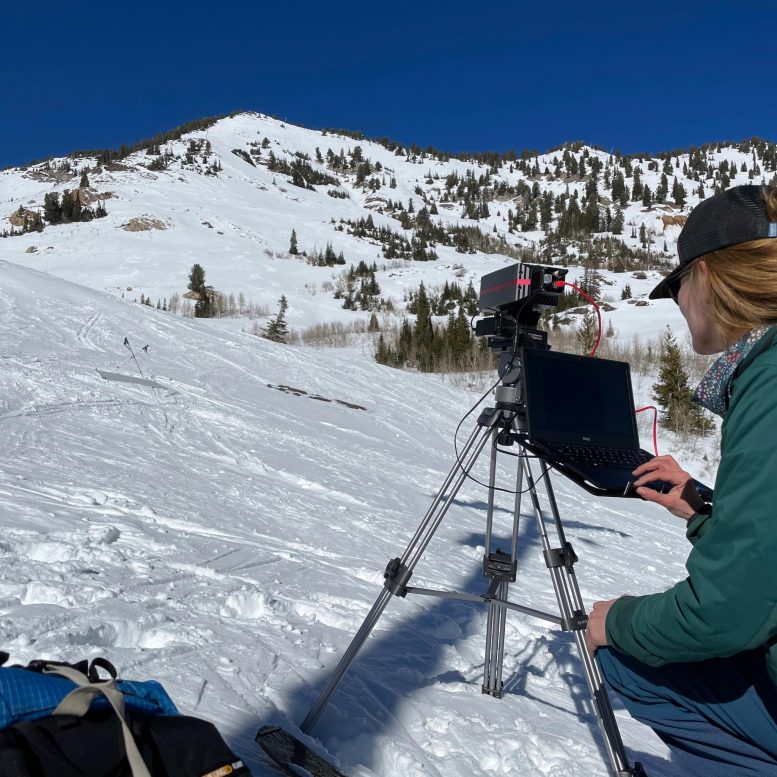
SnowEx 2021
Our very own Dr. McKenzie Skiles is participating in SnowEx NASA research. A number of geography graduate students are helping with SnowEx observations this season: Matt Olson, Joachim Meyer, Dillon Ragar, and Ted Zerivitz.
-

Center for Natural & Technological Hazards Students Thrive with NSF Support
Two undergraduate students affiliated with the U’s Center for Natural & Technological Hazards (CNTH) received support through National Science Foundation Research Experiences for Undergraduates awards in order to conduct research on hazards and disasters.
-
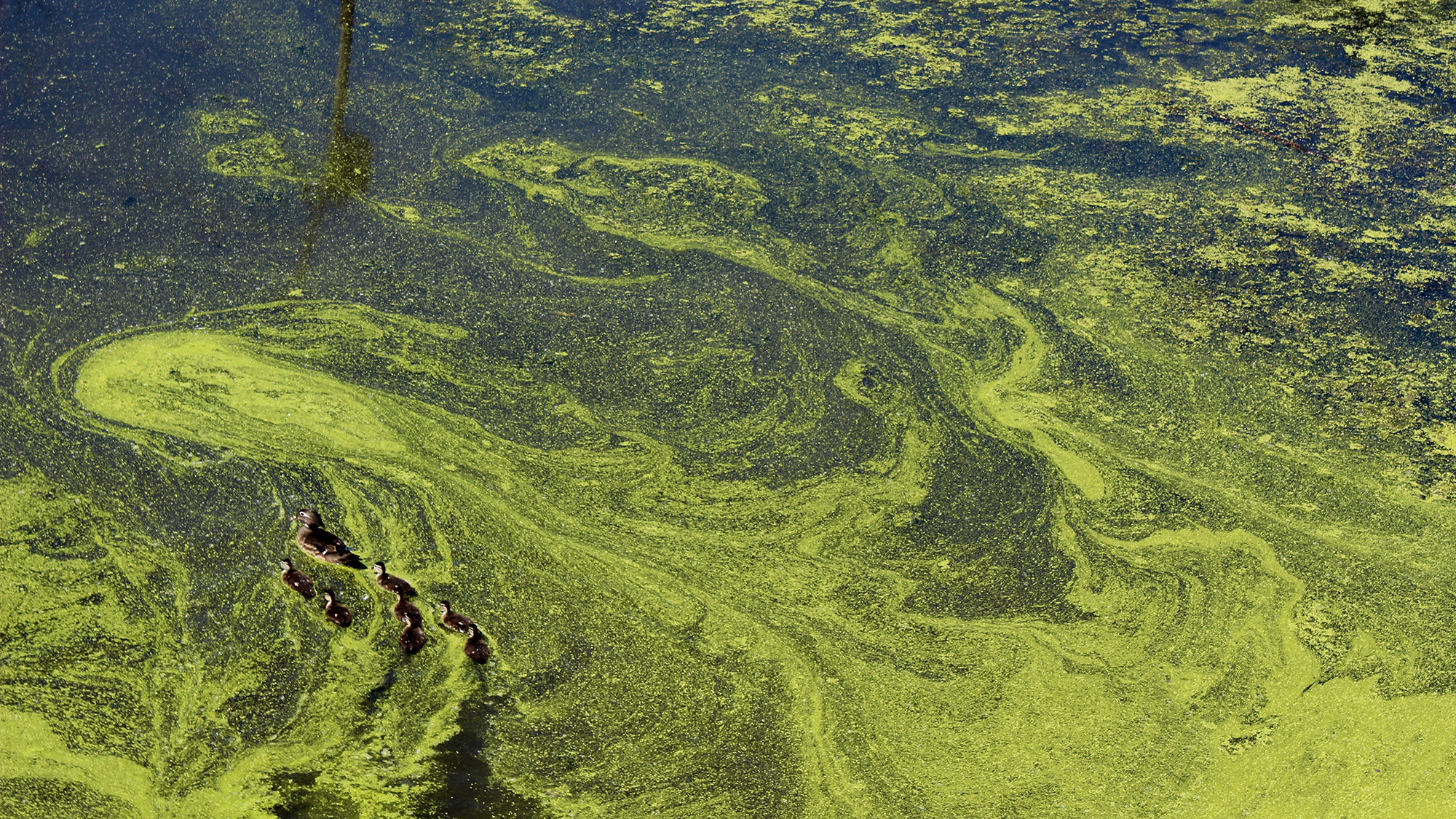
Geography Faculty in the News
Geography Research Assistant Professor Jenn Shah's research shows new ways to look at stream health
-
-

Geog Alumni in the News
Utah scientists get dirty to save threatened cactus
-

Summer Rupper's Research Featured in @theU
Seismic monitoring may improve early warnings for glacial lake outburst floods
-

Geography In The News
GIS Major and student garden steward featured in @TheU
-

Geography Department Faculty Summer Rupper's research featured on the AGU's news website
Spy Satellite Reveals Accelerated Pace of Himalayan Glacier Melt
-

Mapping gender-based violence
U researchers hope to raise awareness of gender-based violence in Utah and beyond.
-
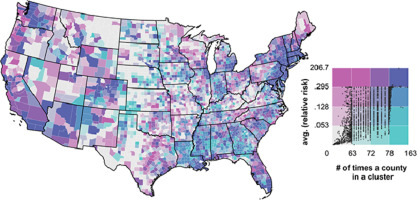
New COVID-19 research by Geography Department faculty
New research on COVID-19 by Geography faculty Dr. Alexander Hohl.
-
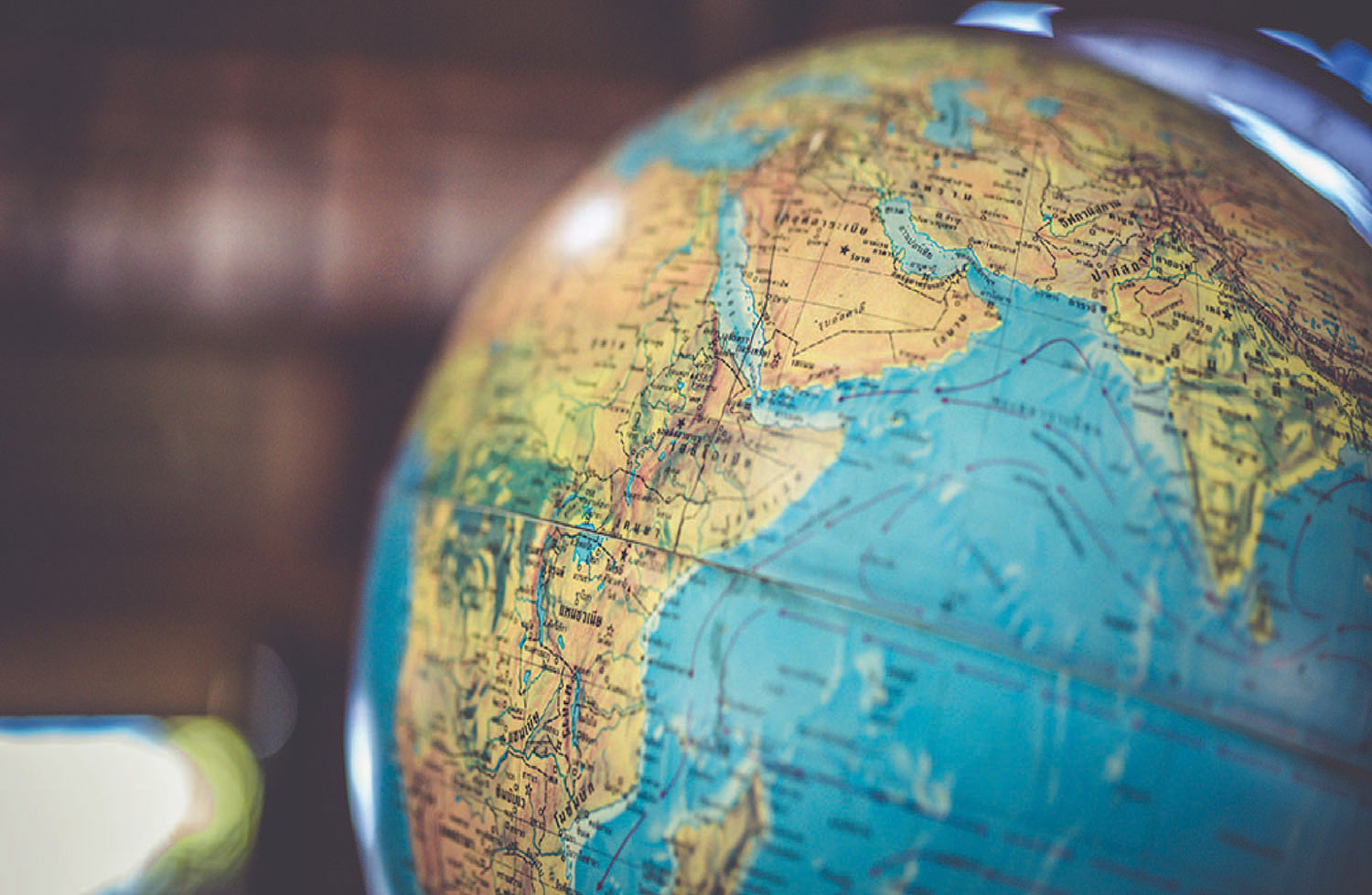
Geography Statement on Racism and Inequality
The Department of Geography stands against systemic racial injustice and the social and economic inequities that afflict people of color. We acknowledge that as part of a historically, predominantly white institution, department, and discipline, we have not done enough in the past to address racism and injustice. We are saddened and angered by pervasive racism in our society, and we recognize that it is our responsibility to learn and involve ourselves in issues of race and bias, so that we can better instruct our students in the context of today’s social environment and our diversifying world.
-

Research Highlight: Tim Collins Co-Author on Air Pollution Study
Utah’s air pollution varies over the year, and at times it is the worst in the United States. The geography traps winter inversions and summertime smog throughout the Salt Lake Valley, but underserved neighborhoods—and their schools—experience the highest concentrations. Previous research has shown pollution disparities using annual averages of PM 2.5 levels, the tiny breathable particles that can damage lungs just hours after exposure. Children are especially at risk and experience more than just health effects; exposure to PM 2.5 affects school attendance and academic success.
-

Geography Faculty Awarded 2 New Seed Grants
The Geography Department is excited to announce two new seed grants awarded to faculty in their research efforts aimed at understanding the impacts of the COVID-19 pandemic: Professor Alex Hohl's grant, “A Geospatial Big Data Platform for Understanding Population Sentiment Toward the Spread of COVID-19 in the United States” is being aided by fellow geography department faculty Rich Medina and Neng Wan, along with Sociology Department professor Ming Wen.
-
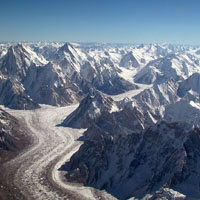
Summer Rupper co-author on comprehensive study of 21st century glacier change
Scientists from around the world have assessed the planet’s 78 mountain glacier–based water systems and, for the first time, ranked them in order of their importance to adjacent lowland communities, as well as their vulnerability to future environmental and socioeconomic changes.
-
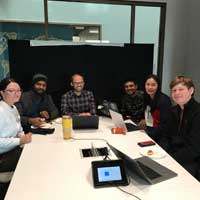
Making a Difference with Maps
At the Geography Club’s second Mapping Party, volunteers made hundreds of edits to OpenStreetMap. Our efforts contribute to the larger Missing Maps campaign, which is supported by organizations such as the Red Cross and Doctors Without Borders. Missing Maps’ main objective is to “map the most vulnerable places in the developing world, in order that international and local NGOs and individuals can use the maps and data to better respond to crises affecting the areas.”
-

Why Geography Is A Key Part Of Fighting The COVID-19 Coronavirus Outbreak
I am an atmospheric scientist with three degrees in meteorology. However my tenured home at the University of Georgia is the Department of Geography. Like many of you reading this, I had a rather narrow understanding of geography when I left NASA to join the faculty at the university. Over the years, I have certainly heard people describe geography as maps, capitals, rivers, and so forth. While these things are definitely a part of the discipline, there is far more complexity and rigor than memorization of facts or your recollections of the elementary Geography Bee.

